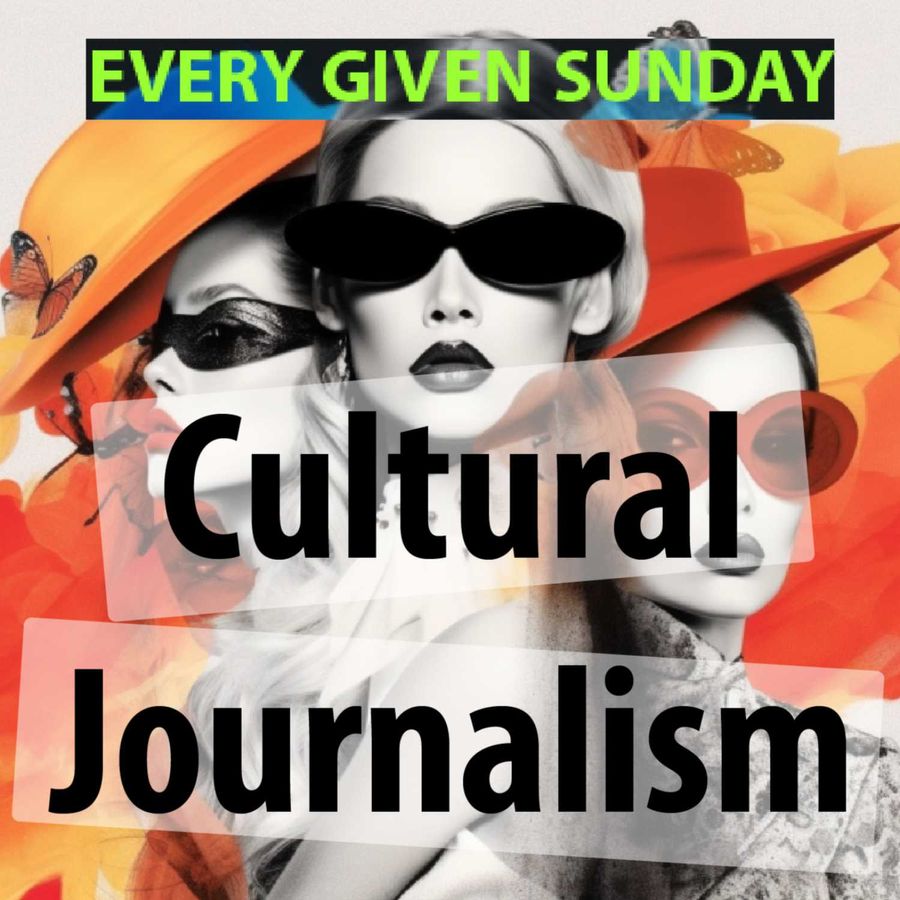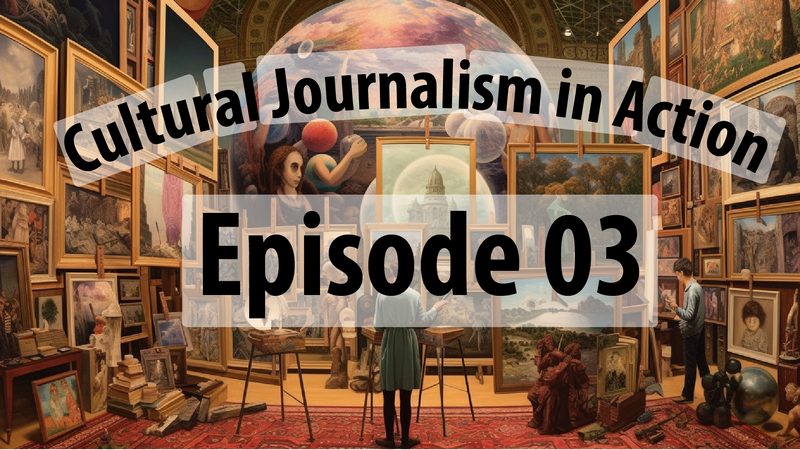Cultural Journalism in Action: An Erudite Exploration Amidst the Vortex of Intellectual Endeavors
Cultural journalism is at a crossroads in an era of soundbites and superficiality. The advent of digital media and the relentless pursuit of clicks and likes have shaped the landscape of contemporary discourse, often undermining the purpose of intellectual rigour. However, amidst this maelstrom, we must embrace the spirit of an ideal reporter of truth, wielding our intelligent swords with erudition, incisiveness, and a commitment to challenging conventional wisdom. So let us critically explore cultural journalism and its potential to transform our understanding of the world.
The Metamorphosis of Cultural Journalism:
Cultural journalism, at its core, seeks to unearth the essence of human civilization, capturing the zeitgeist of our times while providing a critical lens through which to examine the world. However, the state of cultural journalism today is far from its noble origins. It has been diluted by the demands of an attention economy, leaving us with shallow commentary, banal trends, and an absence of intellectual depth. This dire state necessitates a renewed commitment to academic rigour, a trait often championed by great journalists of the past.
Are you a master of engaging with diverse cultural phenomena? From literature to politics, religion to pop culture, I challenge you to wield your formidable intellect to challenge the status quo. With wit and historical references, tear down the veneer of conventional wisdom, exposing the fallacies that permeate our understanding. It is this spirit of intellectual pursuit that cultural journalism must embody if it is to rise above mediocrity.
The Role of Criticism:
At the heart of cultural journalism lies the art of criticism. While many mistake criticism as a harmful endeavour, genuine cultural criticism serves as a guiding light, revealing the intricacies of the human condition. Cultural journalists understand this distinction well and employ their pens as scalpels, dissecting works of art, literature, and political ideologies with surgical precision.

Cultural criticism should not shy away from challenging conventional wisdom. Instead, it must expose our society's flaws, hypocrisies, and injustices. Use a keen sense of acerbic wit or good 'ol grit and determination to dismantle cherished myths and cultural narratives obstructing our pursuit of truth. Moreover, cultivate your ability to expose the contradictions in our beliefs, urging us to question authority and scrutinize the foundations upon which our culture is built.
The Historical Perspective:
To fully appreciate the potential of cultural journalism, we must draw upon historical references. As a devoted history student, you must recognize the power of historical analysis in understanding contemporary phenomena. By contextualizing current events within the broader tapestry of human history, cultural journalism gains the ability to transcend the ephemeral and provide enduring insights.
Historical perspective allows us to discern patterns, identify recurring themes, and challenge prevailing assumptions. It enables us to understand that our cultural milieu is not a stagnant entity but an ever-evolving tapestry shaped by the struggles and triumphs of those who came before us. Cultural journalism must delve into this historical reservoir, offering readers a broader understanding of the ideas, movements, and individuals that shape our present moment.
The Digital Revolution and Its Impact on Cultural Journalism:
The digital revolution has revolutionized cultural journalism, offering unprecedented connectivity and global reach. However, it has also introduced challenges. The emphasis on speed and virality has led to shallow content driven by the demands of the attention economy. Social media has created echo chambers, hindering diverse perspectives and critical dialogue. Cultural journalists must navigate this landscape carefully, balancing captivating content and intellectual rigour. They should leverage technology for research, collaboration, and storytelling while preserving the core principles of cultural journalism.
In this digital era, cultural journalists must adapt to the opportunities and challenges presented. The democratization of information and expanded reach come hand in hand with the risk of superficiality and fragmented discourse. Cultural journalists can ensure their work remains impactful and relevant by strategically utilizing technology, fostering critical dialogue, and maintaining intellectual rigour. The transformative potential of digital media can be harnessed to revitalize cultural journalism, engaging audiences and promoting a deeper understanding of diverse cultural phenomena amidst the whirlwind of intellectual endeavours.
Intellectual Integrity and the Pursuit of Truth:
One of the hallmarks of a superb journalist is her unwavering commitment to intellectual integrity. They do not shy away from controversy, nor do they succumb to the pressures of political correctness. In an age marred by ideological echo chambers, cultural journalism must foster an environment that prizes intellectual honesty above all else.
This pursuit of truth demands a willingness to challenge cherished beliefs, even if it means facing backlash. Cultural journalism should not cater to popular sentiment or pander to the prevailing political winds. Instead, it must provide a space for dissenting voices, uncomfortable truths, and thoughtful critique. Only then can it be a powerful force in shaping public discourse and challenging the prevailing cultural norms.
Conclusion:
As we navigate the intricate landscape of cultural journalism, we must strive to embody the spirit of an ideal cultural reporter. Cultural journalism can transcend the confines of superficiality and reclaim its noble purpose with erudition, incisiveness, and an unapologetic pursuit of intellectual rigour. By engaging critically, challenging conventional wisdom, and drawing upon historical references, we can forge a path toward cultural journalism that stimulates the mind, nourishes the intellect, and challenges the status quo. Let us embrace this transformative potential and rekindle the flame of intellectual pursuit in cultural journalism.


